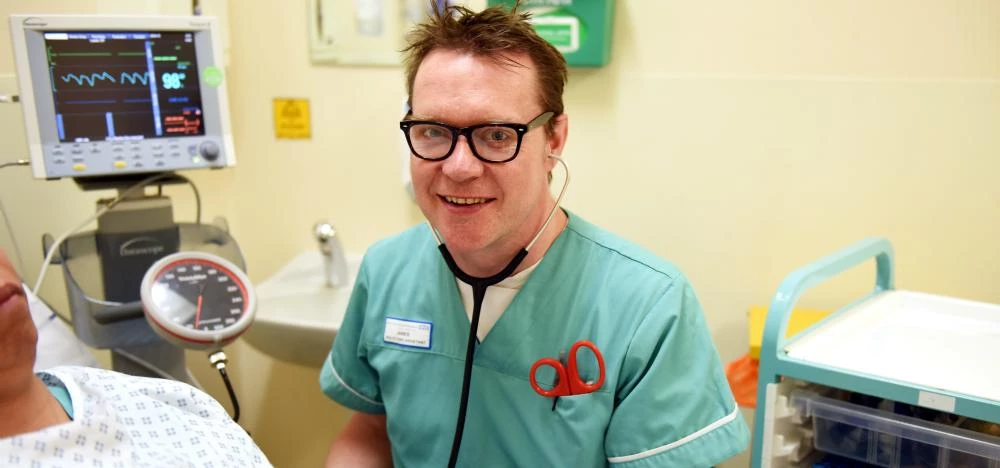
New apprenticeships launched at Teesside University
A new initiative which allows employees to earn while they learn has been launched at Teesside University.
The University is now offering higher and degree apprenticeships which allow businesses to jointly design qualifications and apprenticeship standards which they know will meet their requirements by developing the right skills for employees.
The higher and degree apprenticeships are part-funded by the Government and, unlike traditional apprenticeships, there is no age restriction.
Apprentices gain technical knowledge and practical experience by combining on-the-job training with flexible study towards a higher education qualification – from the equivalent of a foundation degree to a full bachelor’s, or master’s degree in some sectors.
Teesside currently offer a Health Assistant Practitioner Higher Apprenticeship, a Chartered Manager Degree Apprenticeship and an Embedded Electronic Systems Design Engineer Degree Apprenticeship. Further apprenticeships are being developed in areas such as digital technologies, engineering, health and social care, law and journalism.
Dr Ruth Helyer, the University’s head of skills, said: ’The higher and degree apprenticeships are excellent for both employers and employees. Because the qualifications which are part of the apprenticeships have been developed in consultation with senior managers and employers, businesses can be assured that they will meet their specific needs.
’They will also benefit from Government funding. ‘Students will begin their studies in the knowledge that they have a job from day one. They also won’t have to worry about fees as these are met by their employer and the Government.’
At Teesside, over 100 students are already enrolled on the Health Assistant Practitioner Higher Apprenticeship, from both NHS employers and independent sectors. The course has been designed for employees who work in healthcare alongside a registered practitioner.
Most of the study is work-based with the equivalent of 20% of the working week dedicated to learning at University.
Linda Nelson, assistant dean (business engagement and collaborative provision) in Teesside University’s School of Health & Social Care, said: ’Once students have completed the Higher Apprenticeship they can progress on to a pre-registration professional programme and their previous learning is recognised. Examples include nursing, radiography and operating department practice.
‘By completing the apprenticeship, they’re opening up many more opportunities for a professional career. The feedback from students has been extremely positive. The course is really helping them make the link between theory and practice.’
For more information visit tees.ac.uk/apprenticeships.
This was posted in Bdaily's Members' News section by Teesside University .
Enjoy the read? Get Bdaily delivered.
Sign up to receive our daily bulletin, sent to your inbox, for free.








 Raising the bar to boost North East growth
Raising the bar to boost North East growth
 Navigating the messy middle of business growth
Navigating the messy middle of business growth
 We must make it easier to hire young people
We must make it easier to hire young people
 Why community-based care is key to NHS' future
Why community-based care is key to NHS' future
 Culture, confidence and creativity in the North East
Culture, confidence and creativity in the North East
 Putting in the groundwork to boost skills
Putting in the groundwork to boost skills
 £100,000 milestone drives forward STEM work
£100,000 milestone drives forward STEM work
 Restoring confidence for the economic road ahead
Restoring confidence for the economic road ahead
 Ready to scale? Buy-and-build offers opportunity
Ready to scale? Buy-and-build offers opportunity
 When will our regional economy grow?
When will our regional economy grow?
 Creating a thriving North East construction sector
Creating a thriving North East construction sector
 Why investors are still backing the North East
Why investors are still backing the North East